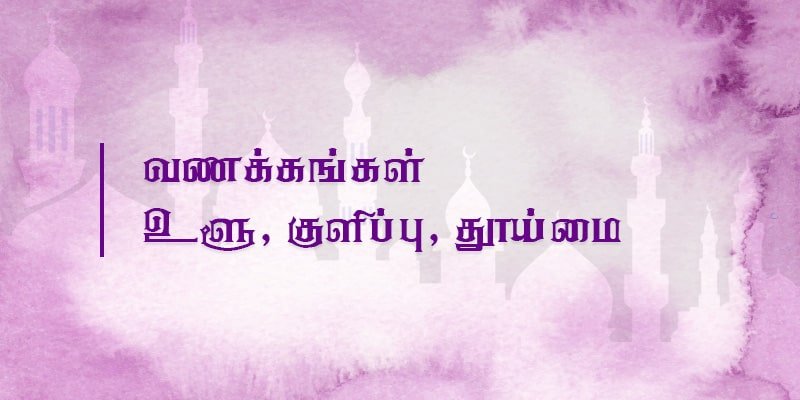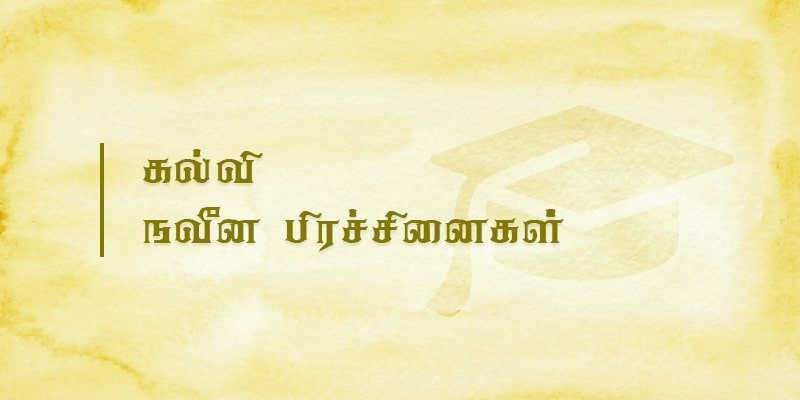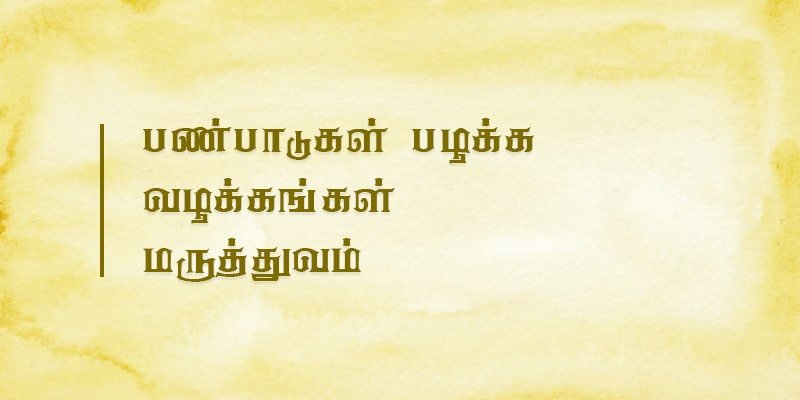66. Is the Islamic law on divorce justified?
The verses of the Quran 2:227, 2:228, 2:229, 2:230, 2:231, 2:232, 2:236, 2:241, 4:20, 4:34, 65:1, 33:49 speak about the rights of husbands to divorce their wives. And we find the norms and procedures in these verses to be followed regarding the same it these verses.
Some consider the rights given to men to divorce the wives are a great injustice to women.
When an option to divorce, a wife is denied to a man when he dislikes her more harm is done to the wife, can be seen from the following evils in the society.
1. When a man arrives at a juncture where he cannot obtain a divorce or he feels it can be obtained only after a prolonged effort, then he comes to a decision to set up concubines. He will torture the wife and will not provide for her.
2. Or, to obtain a divorce easily he will accuse her of immorality.
3. He may set her on fire and call it a suicide or accident.
We see these kinds of consequences in non-Muslim societies where stringent norms are in place to obtain divorce.
Hence taking into consideration the safeguarding of life, possessions, honor, respect for women, Islam has made easy the grant of divorce.
Though Islam has made granting of divorce an easy affair it does not in any way allow anyone to follow it in a haphazard way. Islam has detailed its guidance in the following manner:
At first the wife is to be educated in the best way possible to dissuade her from divorce.
When it does not bear fruit, she must be temporarily kept away from his bed.
Even if that does not bring any change for good in her, corporal punishment is advised in verse (4:34) of the Quran.
Hitting on the face of the wife or inflicting injuries on her is vehemently opposed by Prophet Muhammad.
To prevent people from moving towards divorce a slight corporal punishment is permitted in Islam.
More than the people who have accepted Islam and its law on corporal punishment, the non- Muslims who are against beating are the ones who beat up their women folk more.
Man is created stronger than woman, at times when they are left alone, we cannot post a security guard to provide protection for the weaker sex, at such a situation an aggravated strong person will naturally have tendency to assault a weak one. This cannot be prevented by any law.
By declaring to beat women lightly, the possibility of them getting severely beaten can be prevented. This is one of the reasons we find Muslims torturing women to a lesser extent.
Despite all these measures a solution is not reached, then a compromise needs to be negotiated by the members of both families says verse (4:35) of the Quran.
Despite these four activities if a solution could not be arrived at, there is absolutely no meaning in the couple living together and best is to opt for a divorce as allowed by Islam.
A divorce comes into effect when a husband tells the wife ‘I divorce you’ with two witnesses.
A wife is entitled to security money from the husband once the divorce takes effect, and the responsibility of deciding this and getting the amount from the husband lies with the local jamaat.
There are no other rituals whatsoever.
Three chances are given to a husband to call for a divorce.
At the first instance of having divorced his wife the marriage bond is not broken completely between them. He can still join the wife within three menstrual periods. And if the wife is carrying an offspring, he can rejoin before the baby is delivered verse (65:4) of the Quran.
If the couple does not rejoin within the stipulated time their wedlock is broken, nevertheless if they desire to live together, they can enter a wedlock by a marriage, and this is not forbidden.
In case the couple reunites after the first divorce (Talaq) pronounced, and still not able to tolerate each other, they need follow the norms and procedures cited previously and opt for divorce again.
As mentioned, previously they can reunite again within the specified period and once the deadline is passed, they can marry again.
Thus, if the third chance of living together does not bring any change in their relationship they can still opt for divorce. This is the final chance.
Once the last and final divorce is pronounced, the option for the couple to reunite is closed for ever.
Nevertheless, the divorced wife can opt for a marriage to a different person and, if she happens to obtain a divorce from him (the other person) her former husband can still marry her again.
This kind of divorce with an option to reunite with the same woman is permitted only twice can be seen from the verse (2:229) of the Quran.
Muslims who are ignorant of these laws Islam has provided them, destroy their married life, pronouncing ‘talaq’ three times at a stretch or calling just ‘Muttalaq’ once for a divorce to materialize, thinking all other avenues are shut to live together.
This is entirely wrong, saying the word ‘talaq’ three times or three hundred times means only one option for divorce has been exhausted. This allows space for a reconciliation between the couple as already mentioned, the conditions to reunite within the stipulated time frame that allows the couple to marry again.
However, Ibn Abbas (RA) narrates that at a certain period of the time of Prophet Muhammad pronouncing three times ‘talaq’ was considered a single talaq.
Hadith Book Muslim: 2932, 2933, 2934.
The mis concept of considering three ‘talaq’ pronouncement as the final was given shape after Prophet Muhammad’s time.
The divorced women should not be left in the lurch after divorce, the concerned jamaat needs to take the responsibility of getting the financial relief for her from the husband.
Please refer explanation point 74.
These laws are regarding men seeking divorce, similarly there are laws governing divorce demanded by women.
During the time of Prophet Muhammad, Saabit bin Quais’s (RA) wife approached him and said, “Oh, messenger of Allah I do not find fault with the good behaviour or conduct of my husband, but I hate him for being Un Islamic.” Though he is a good person, she does not wish to continue living with him. Immediately Prophet Muhammad asked her whether she is ready to return the garden she accepted as Mahar from him. She readily agreed to it. Then the prophet sent word for him told him “Take back the garden and release her from (wedlock) completely”.
Hadith Book Bukhari: 5273, 5275, 5277.
From the above message the practice of divorce procedures to be carried out by the prophet can be understood.
When a woman dislikes her husband, she needs to convey it to the community leader, who orders her to return the Mahar she accepted from him during the marriage and annul the marriage contract between them, is the message conveyed here.
It is better for women not to break the marriage on their own, because Mahar was accepted by the women with witnesses, and it is appropriate that it is returned with one (community leader) is the reason for this requirement of (community leader) as a witness while returning.
Since women are subjected to more hardships by divorce, and to discourage them from taking hasty decisions this arrangement is imperative. This paves a way for counselling by the community leader and is better for women to be separated in this way.
Women cannot find a better way to divorce in the whole world than this. A right that could not be won even in the twentieth century Islam had given women fourteen hundred years ago.
A very serious reason is not a must for seeking divorce from the husband, In the above cited incidence the woman did not find any fault with the husband but says she dislikes him, and the prophet also did not question her reason, had questioning the motive been emphasized in the law the prophet would have done so. He granted divorce without interrogation.
Islam does not consider marriage as something that could not be separated rather views it as a contract to live together.
The verse (4:21) says “Those women having taken a strong covenant from you, and each having entered the other”
“The same way a husband has rights over the wife so does the wife over the husband” says verse (2:228) of the Quran.
Like evil consequences that might take place if the avenue for divorce is denied or delayed for men the same could occur in the case of women.
It has come to such a situation that wives who dislike their husbands are pushed to a corner of eliminating them.
They poison their husband to death or collude with their illegal lovers to murder them. When given an opportunity to obtain divorce from their husbands in an easy way, and allowed to remarry as wished, such kind of incidents can be avoided.
Hence the right to divorce is granted to women also in Islam This right to women to opt for divorce when required is granted to them in a measure equal to that of men. This can be seen in the verses (2:228-232) of the Quran.
To know more about divorce in Islam please refer explanation points 69, 70, 74, 386, 402, 424.
66. Is the Islamic law on divorce justified?
Typography
- Smaller Small Medium Big Bigger
- Default Meera Catamaran Pavana
- Reading Mode
















